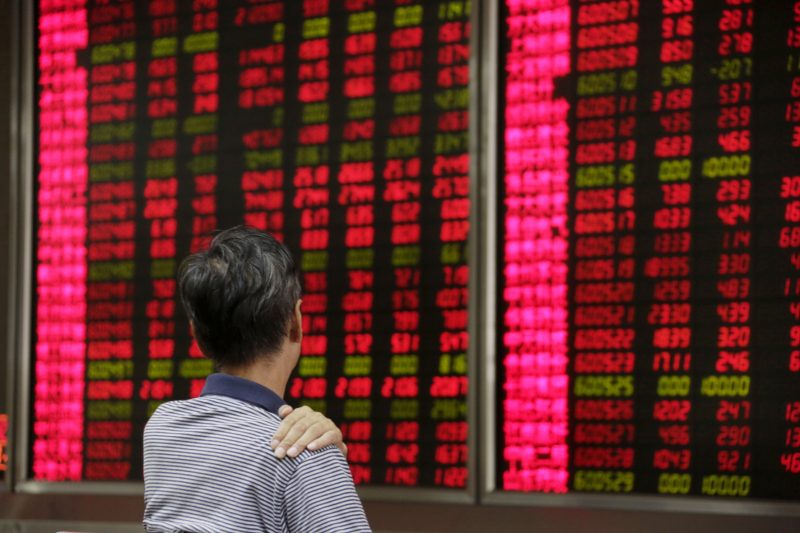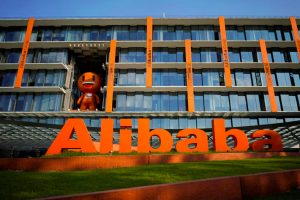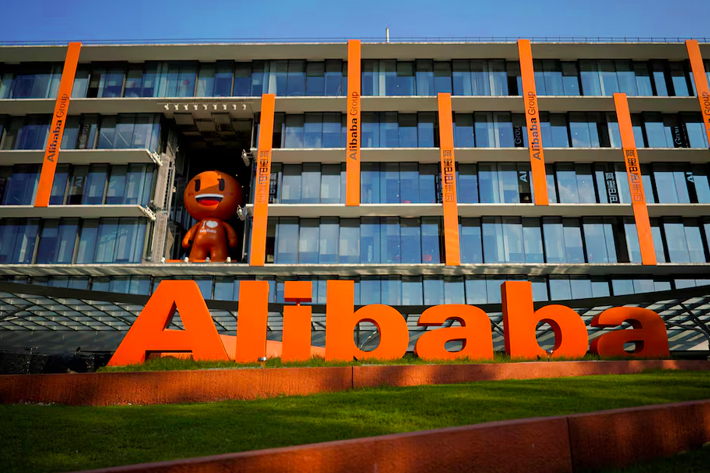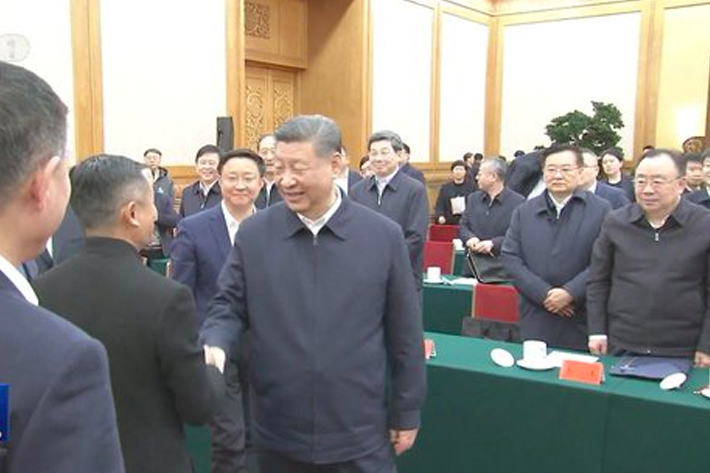Asia stocks were left reeling on Wednesday after hotter than expected US inflation sent a shockwave across the region’s trading floors.
Japanese stocks fell the most in three months, Hong Kong’s Hang Seng tumbled and even mainland China’s usually less vulnerable bourses took a hit too after Wall Street plunged on the news.
The Nikkei share average dropped 2.95% shortly after markets opened and closed down 2.8% at 27,818, with rumours the Bank of Japan was preparing for a currency intervention to aid the struggling yen also weighing on sentiment.
The broader Topix index closed 1.97% lower, in its worst day since June 13.
Also on AF: US Pondering Sanctions to Stop China Invading Taiwan
The US Consumer Price Index report was a “negative surprise for the stock market,” said Masahiro Yamaguchi of SMBC Trust Bank, who added that the Nikkei could slip back below 27,000 on future Federal Reserve interest rate hikes.
Wall Street posted its biggest loss in two years after the US CPI report showed August consumer prices edged up 0.1% despite consensus expectations for a decrease.
Markets are now fully pricing in a third successive rate hike of at least 75 basis points at the Fed’s next meeting and see a 34% probability of a highly aggressive 100 bps.
Technology stocks led the losses on the Nikkei, falling 2.6%, after the Philadelphia semiconductor index slid 6.2% overnight.
SoftBank Group Corp fell 4.4% and chipmaking equipment manufacturer Tokyo Electron slipped 3.7%.
Alibaba Drags Hang Seng
MSCI’s broadest index of Asia-Pacific shares outside Japan fell 2.2% and China stocks tracked the slump in global markets sparked by that US inflations data.
The Hang Seng Index dropped 2.5%, or 479.76 points, to 18,847.10 with tech firms tumbling 2.9%. E-commerce giant Alibaba Group was down 4.5% to become the biggest drag on the Hang Seng benchmark.
The Shanghai Composite Index dipped 0.8%, or 26.26 points, to 3,237.54, while the Shenzhen Composite Index on China’s second exchange dropped 1.25%, or 148.69 points, to 11,774.78.
Elsewhere across the region, Taipei stocks settled 1.6% lower in their worst session in a week, while equities in Manila, Seoul and Singapore all fell more than 1%.
Indian stocks dropped with Mumbai’s signature Nifty 50 index down 0.04%, or 6.45 points, at 18,063.60.
Upward Pressure on US Treasury Yields
Globally, stocks were stuck in a sea of red as markets braced for an even more aggressive US Federal Reserve as inflation soars.
European shares slipped 0.3%, retreating further from almost three-week highs hit a day earlier, and London’s FTSE slid as much as 1% even as data showed British inflation fell unexpectedly in August.
“The Fed has got further to go and there is an understanding that the peak rate will now be above 4%,” said Seema Shah, chief strategist at Principal Global Investors.
“There had been a feeling that inflation was moderating but the data shows just how sticky inflation is and that requires the Fed to step it up a gear.”
That outlook kept upward pressure on US Treasury yields, with two-year yields rising to a fresh 15-year high at 3.804% in London trade.
BOJ Currency Intervention Rumour
The outlook for further aggressive rate hikes boosted the dollar, causing angst among major central banks that have seen their currencies weaken as this fuels imported inflation.
But the yen rallied over 1% to around 143 per dollar on a report that Bank of Japan had conducted a rate check in apparent preparation for currency intervention.
Earlier, Japanese Finance Minister Shunichi Suzuki said that currency intervention was among options the government would consider.
The last time Japan intervened to support its currency was in 1998, when the Asian financial crisis triggered a yen selloff and rapid capital outflows.
While major central banks have been hiking interest rates, the Bank of Japan remains the holdout dove and has this year stuck to its ultra-easy monetary policy stance.
Elsewhere, oil prices were little changed, with US crude at $87.41 per barrel and Brent steady at $93.20.
Key figures
Tokyo – Nikkei 225 < DOWN 2.8% at 27,818.62 (close)
Hong Kong – Hang Seng Index < DOWN 2.5% at 18,847.10 (close)
Shanghai – Composite < DOWN 0.8% at 3,237.54 (close)
New York – Dow < DOWN 3.9% at 31,104.97 (Tuesday close)
- Reuters with additional editing by Sean O’Meara
Read more:
Bank of Japan Seen Preparing for Currency Intervention
Baring Private Equity Raises $11.2bn, One of Asia’s Largest Funds
























